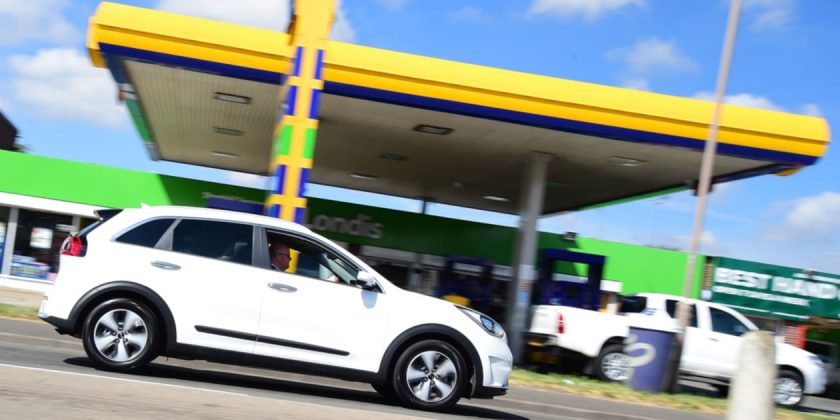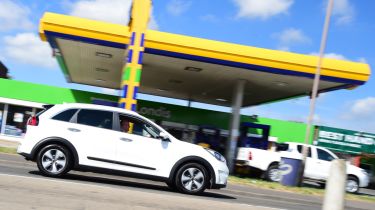Petrol hits average of 148.02p per litre, while diesel reaches 151.57p – both exceeding previous records
The average pump prices of petrol and diesel in the UK have both reached record highs. Petrol now costs an average of 148.02p per litre, while diesel has hit 151.57p.
The AA, which provided the data, conducted a poll of 15,335 of its members. It found that 43 per cent are cutting back on car use due to inflated fuel prices – this figure rises to 59 per cent for young drivers and 53 per cent for motorists on lower incomes.
E10 petrol explained: checker tool, UK prices and is it OK for your car?
Among AA members aged 18 to 34, 28 per cent are cutting back on other spending to compensate for high petrol and diesel prices. Half scaled back on their Christmas spending, while 80 per cent are eating out less.
As for the 8,361 respondents aged 65 and over, 10 per cent have cut back on their weekly shop. This figure rises to 17 per cent among 25 to 34-year-olds.
Luke Bosdet, fuel price spokesman at the AA, commented: “The cost of living crisis has been ratcheted up yet another notch, tightening the vice on family spending when it faces other pressures from impending domestic energy cost and tax increases.”
What makes up the price of UK fuel?
The price of fuel can be divided into three sections; the taxes imposed by the Government, the costs of drilling, refining and transporting, and the profit margins for the fuel companies.
For petrol, diesel and bioethanols, the Government gets around 65 per cent of the overall cost through fuel duty and value added tax (VAT). The fuel duty represents the fixed price of fuel – it stays the same regardless how much overall oil prices fluctuate. Currently, the Treasury adds 57.95 pence to each litre of fuel through fuel duty, and another 20 per cent through VAT. How much you pay in VAT depends on how much fuel you purchase.
The second biggest chunk comes from the wholesale costs of the fuel itself. The wholesale cost is a combination of currency exchange rates, global oil prices, and even domestic supply and demand.
New 450kW EV charger from BMW and Porsche is as fast as filling up with petrol
Finally, the smallest share of what motorists have to pay for fuel comes from the filling stations themselves. A typical fuel station profits around 2p-5p per litre, but tough competition can drive this down further. Supermarkets increasingly use fuel prices as a loss leader to tempt customers in.
Why is supermarket fuel cheaper than an independent forecourt?
Supermarket forecourts usually offer the cheapest fuel prices and this is because of the market power supermarkets hold. Companies like Asda, Tesco, Sainsbury’s and Morrisons are all in competition with one another, so they keep fuel prices as low as possible hoping that when motorists come to fill their tank, they might do their weekly grocery shopping, too.
There are persistent rumours that supermarket fuel contains fewer additives and is of lesser quality than fuel from traditional forecourts, but there’s little hard evidence of this. All fuel sold in the UK has to abide by the standards set in the Motor Fuel Regulation.
Why is fuel so expensive on motorways?
Motorway fuel stations argue the reason their prices are higher is that many of them are open 24 hours a day and offer more services than a regular forecourt. Motorway fuel stations also pay high rent prices for the buildings they operate.
In more remote areas, fuel is often more expensive because of the higher transport and supply costs, but according to RAC fuel spokesman Simon Williams, this doesn’t apply to motorway stations: “We can see no reason why motorway fuel should be so much more expensive. In fact, arguably it is much easier from a delivery point of view than it is getting fuel to urban filling stations.”
Why is diesel more expensive than petrol?
Although diesel and petrol are taxed the same by the Treasury, historically diesel has been more expensive than petrol, as domestic refineries have struggled to meet demand. This has forced the UK to import diesel from other countries at a greater rate than petrol. In addition, diesel prices are pushed up by the cost of the additives that go into the fuel.
Best diesel cars 2021
Furthermore, the gap between UK petrol and diesel prices widens during the winter. The end of the US “driving season” means retailers have a surplus of petrol they can’t export, so they sell it here at a lower price. Diesel demand, meanwhile, increases across continental Europe, where the fuel is commonly used in heating oil.
However, the influx of cheap diesel from countries like Saudi Arabia has turned the tide, swinging diesel wholesale prices closer to that of petrol, and bringing the pump price down with it.
What’s your view on fuel prices in the UK? Do we pay too much for our petrol and diesel? What would you do about it? Join the debate in our comments section below…
Source: Read Full Article



 E10 petrol explained: checker tool, UK prices and is it OK for your car?
E10 petrol explained: checker tool, UK prices and is it OK for your car? New 450kW EV charger from BMW and Porsche is as fast as filling up with petrol
New 450kW EV charger from BMW and Porsche is as fast as filling up with petrol Best diesel cars 2021
Best diesel cars 2021